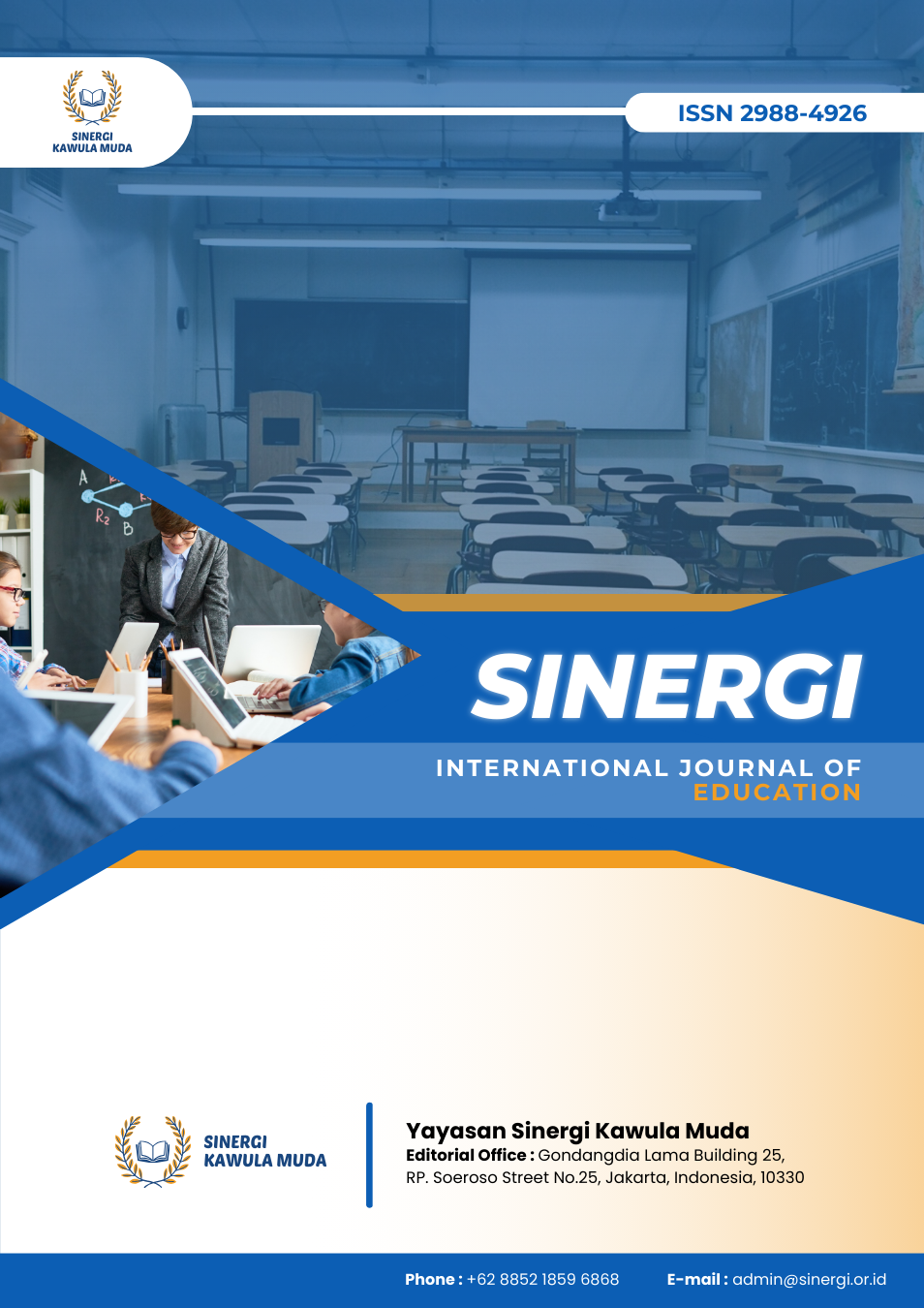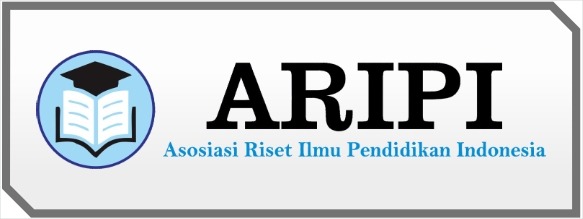The Synergy of Moderate Islam and Curriculum Reform in Character Education
DOI:
https://doi.org/10.61194/education.v3i2.702Keywords:
Character Education, Moderate Values, Islamic Education, Curriculum Reform, Narrative Learning, Teacher Empowerment, Education PolicyAbstract
This study explores the integration of moderate values in character education through a narrative review of current literature, with a specific focus on Islamic educational settings such as madrasahs. The aim is to understand how character formation can be effectively achieved through a synthesis of religious traditions and modern pedagogical innovations. The review adopts a narrative method to critically examine key thematic patterns, drawing from empirical studies and qualitative insights. Results reveal that integrating moderate religious values with educational curricula enhances moral development, social tolerance, and holistic student character. Educators play a crucial role, particularly through narrative teaching methods and curriculum innovations that align with cultural contexts. Systemic factors such as rigid policies, bureaucratic institutional structures, and social disparities are identified as major challenges. The discussion advocates for reformative actions, including decentralizing education policy, improving teacher training, and incorporating digital and project-based learning. This review enriches existing academic discourse by emphasizing narrative and emotional engagement, providing a holistic framework for educational reform. The study concludes that character education must be dynamic, culturally adaptive, and grounded in moderate values to effectively respond to contemporary global and local educational demands.
References
Amalia, E., M, D., Khoiriyati, S., Ummah, N., Oviani, M., Kusumawardhani, J., … & Umayyah, U. (2025). Bridging educational reform and faith: evaluating kurikulum merdeka's compatibility with islamic values in madrasahs. Munaddhomah Jurnal Manajemen Pendidikan Islam, 5(4), 483-500. https://doi.org/10.31538/munaddhomah.v5i4.1413 DOI: https://doi.org/10.31538/munaddhomah.v5i4.1413
Arifin, S., Huda, M., & Mufida, N. (2023). Developing akhlak karimah values through integrative learning model in madrasah. Jurnal Pendidikan Islam, 9(1), 41-54. https://doi.org/10.15575/jpi.v0i0.24443 DOI: https://doi.org/10.15575/jpi.v0i0.24443
As’ad, M. (2015). Tajdīd al-tarbīyah al-islāmīyah ‘inda al-shaykh al-ḥājj imam zarkasyi. Studia Islamika, 22(2), 333-368. https://doi.org/10.15408/sdi.v22i2.1922 DOI: https://doi.org/10.15408/sdi.v22i2.1922
Hue, M. (2021). Life education, positive education, and character education in greater china: theory, research, and practice., 235-250. https://doi.org/10.4324/9780429324161-12 DOI: https://doi.org/10.4324/9780429324161-12
Ma`arif, M., Rofiq, M., Kausar, S., Sirojuddin, A., Kartiko, A., & Hasan, M. (2024). Shaping students’ moderate islamic character at madrasah. Jurnal Pendidikan Islam, 10(2), 323-335. https://doi.org/10.15575/jpi.v10i2.34029 DOI: https://doi.org/10.15575/jpi.v10i2.34029
Mariyono, D. (2024). Multicultural values: meeting point of two forces in developing islamic education. QEA, 1(1), 46-69. https://doi.org/10.1108/qea-02-2024-0018 DOI: https://doi.org/10.1108/QEA-02-2024-0018
Pasaribu, M., Khairifa, F., Ali, R., Muis, A., & Ritonga, M. (2024). Youth character building through quality education in realizing golden indonesia 2045. Journal of Ecohumanism, 3(4), 180-192. https://doi.org/10.62754/joe.v3i4.3473 DOI: https://doi.org/10.62754/joe.v3i4.3473
Taufik, M. (2020). Strategic role of islamic religious education in strengthening character education in the era of industrial revolution 4.0. Jurnal Ilmiah Islam Futura, 20(1), 86. https://doi.org/10.22373/jiif.v20i1.5797 DOI: https://doi.org/10.22373/jiif.v20i1.5797
(2020). Development of teaching and learning of islamic education program: empirical evident from madrasah in singapore. Journal of Critical Reviews, 7(03). https://doi.org/10.31838/jcr.07.03.95 DOI: https://doi.org/10.31838/jcr.07.03.95
Alarcón-Espinoza, M., García, P., & Anguera, M. (2023). Systematic observation of emotional regulation in the school classroom: a contribution to the mental health of new generations. International Journal of Environmental Research and Public Health, 20(8), 5595. https://doi.org/10.3390/ijerph20085595 DOI: https://doi.org/10.3390/ijerph20085595
Kerkhoff, S., Spires, H., & Wanyonyi, P. (2020). Teaching new literacies and inquiry: a grassroots effort to bring about educational change in Kenya. Journal of Adolescent & Adult Literacy, 64(2), 145-156. https://doi.org/10.1002/jaal.1067 DOI: https://doi.org/10.1002/jaal.1067
Miço, H., & Cungu, O. (2022). The need for digital education in the teaching profession: a path toward using the European Digital Competence Framework in Albania. IAFOR Journal of Education, 10(2), 26-50. https://doi.org/10.22492/ije.10.2.02 DOI: https://doi.org/10.22492/ije.10.2.02
Morska, L., Polok, K., Bukowska, M., & Ладанівська, І. (2022). New technologies and their impact on foreign language teacher professional burnout. Advanced Education, 35-44. https://doi.org/10.20535/2410-8286.251587 DOI: https://doi.org/10.20535/2410-8286.251587
Andersen, L., Basballe, D., Buus, L., Dindler, C., Hansen, T., Hjorth, M., ... & Slot, M. (2024). Infrastructuring digital literacy in K-12 education: A national case study. International Journal of Child-Computer Interaction, 42, 100697. https://doi.org/10.1016/j.ijcci.2024.100697 DOI: https://doi.org/10.1016/j.ijcci.2024.100697
Boechler, P., Dragon, K., & Wasniewski, E. (2015). Digital literacy concepts and definitions. In Handbook of Research on Cross-Cultural Approaches to Language and Literacy Development (pp. 228–246). https://doi.org/10.4018/978-1-4666-8200-9.ch011 DOI: https://doi.org/10.4018/978-1-4666-8200-9.ch011
Breakstone, J., McGrew, S., Smith, M., Ortega, T., & Wineburg, S. (2018). Why we need a new approach to teaching digital literacy. Phi Delta Kappan, 99(6), 27–32. https://doi.org/10.1177/0031721718762419 DOI: https://doi.org/10.1177/0031721718762419
Choi, E., Choi, Y., & Park, N. (2022). Blockchain-centered educational program embodies and advances 2030 sustainable development goals. Sustainability, 14(7), 3761. https://doi.org/10.3390/su14073761 DOI: https://doi.org/10.3390/su14073761
Donate-Beby, B., García‐Peñalvo, F., & Amo, D. (2024). Data literacy questionnaire for educators. 1–6. https://doi.org/10.1109/siie63180.2024.10604607 DOI: https://doi.org/10.1109/SIIE63180.2024.10604607
Hegestedt, R., Nouri, J., Rundquist, R., & Fors, U. (2023). Data-driven school improvement and data-literacy in K-12: Findings from a Swedish national program. International Journal of Emerging Technologies in Learning (iJET), 18(15), 189–208. https://doi.org/10.3991/ijet.v18i15.37241 DOI: https://doi.org/10.3991/ijet.v18i15.37241
Howard, P. (2015). Digital citizenship in the afterschool space: Implications for education for sustainable development. Journal of Teacher Education for Sustainability, 17(1), 23–34. https://doi.org/10.1515/jtes-2015-0002 DOI: https://doi.org/10.1515/jtes-2015-0002






